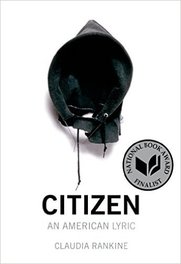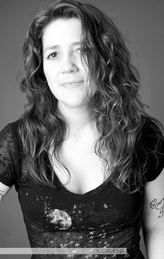Probably Everyone Else in This Series is Going to Write About Citizen (I’m Sorry) I’m hurrying to write this before someone else does. I’m hurrying to write this before I decide to take a safer, clearer route. Before the wine runs out, before the real cold sets in, before the next kid’s shot 16 times in the streets of my city and I have to start over and convince myself once again that the words are worth something. Just over a year ago, I’d finished a manuscript, and I thought it was pretty good. I’d spent two weeks in relative solitude at Hedgebrook and during that time one of my friends took her own life. I’d ordered and re-ordered the book’s pages, written new poems, shredded and rebuilt old ones, invented editing filters and — after Heather died — spent hours, days, nights, stumbling the woods and the bay shore, thudding with grief. After coming home, I put the manuscript aside, thinking to let it rest for a while before bringing it out again for tweaks, formatting, the usual stuff of getting a poetry thing ready to be considered by the world. Then I finally read Citizen by Claudia Rankine. Specifically, I read the poem where she describes riding in a car with someone who says “his dean is making him hire a person of color when there are so many great writers out there.” And it’s not that I was shocked by the content, I wish I were — or rather, I wish we lived in a world where such interactions were rare enough to merit being shocking — but the poem presents this moment, this knife-twist’s worth of time, in a way that isn’t in any way preoccupied with being a poem. But it is, is a poem. And it’s simultaneously unconcerned with, unencumbered by, and in absolute mastery of, poetic form. It — transcends form. (Should we argue again or still about whether prose poems are poems? Should we debate the poem-essay-monologue-short-short’s craft? Can we talk about the sounds in the poem’s first sentence alone — just the sounds? “You are in the dark, in the car, watching the black-tarred street being swallowed by speed” — do you see what I’m saying? Mastery. Transcendence.) In the poem, she says “you have a destination that doesn’t include acting like this moment isn’t inhabitable.” I think it was in reading that, that I decided everything had to change for me. You have a destination that doesn’t include acting like this moment isn’t inhabitable, hasn’t happened before, and the before isn’t part of the now I couldn’t put a book in the world that, even by implication, indicated that what she was describing wasn’t part of the now, part of my now, that ignored my current and historical part in it. And the form of the poem, along with that of the rest of the poems that make up the book, gave me permission, or admonition, or impetus, to make poems that didn’t hew to my traditionalist-tending sense of what a poem should look like, sound like, include, be. I apologized to my friend-editors who’d devoted time to the manuscript, and set to rewriting. I decided I needed to interrogate whiteness, as the only way I could imagine authentically responding to the depth and vastness and dare of Citizen. Is this essay even a response to that poem? Is it a selfish turning of the lens on my white self instead of talking about that poem, which is nearly inextricable from the book as a whole? Am I crowding the spotlight again? But the request was to write about a poem that changed something for us. And I am/was/am changed. My friend died, and that was terrible, and common. We have this in common, all of us, this living and dying. Can we stop pretending that the before isn’t part of the now? Can we keep on? In her poem “My Dead Friends,” Marie Howe writes of how she asks the dead for advice. I do this too. The dead are never wrong. My dead are never wrong. Hers say, “whatever leads to joy.” They say, “to more life and less worry.” Mine say “whatever leads to truth.” They say “to more life and less numb.” So here’s to less numb, and more poetry. When the poem from Citizen speaks of faces being suddenly exposed to the wind, I know that’s what’s required. Stop the car. Slam the brakes. Let the words, those inadequate letterbags, lead the way. Let the time shorten between where we are and where we are going. Let us get there cold and together. *Link: from Citizen: “You are in the dark, in the car...  Marty McConnell is the author of wine for a shotgun, (EM Press, 2012), which received the Silver Medal in the 2013 Independent Publishers Awards, and was a finalist for both the Audre Lorde Award (Publishing Triangle) and the Lambda Literary Awards. She is also a seven-time National Poetry Slam team member, the 2012 National Underground Poetry Individual Competition (NUPIC) Champion, and appeared twice on HBO’s “Def Poetry Jam.” McConnell’s work has been published in numerous anthologies, including Best American Poetry 2014, A Face to Meet the Faces: An Anthology of Contemporary Persona Poetry, City of the Big Shoulders: An Anthology of Chicago Poetry, Word Warriors: 35 Women Leaders in the Spoken Word Movement, as well as journals including Bellevue Literary Review, Willow Springs, Gulf Coast, Indiana Review, Crab Orchard, and Beloit Poetry Journal, among others. www.martyouloud.com |
Vital Signs:
|

 RSS Feed
RSS Feed